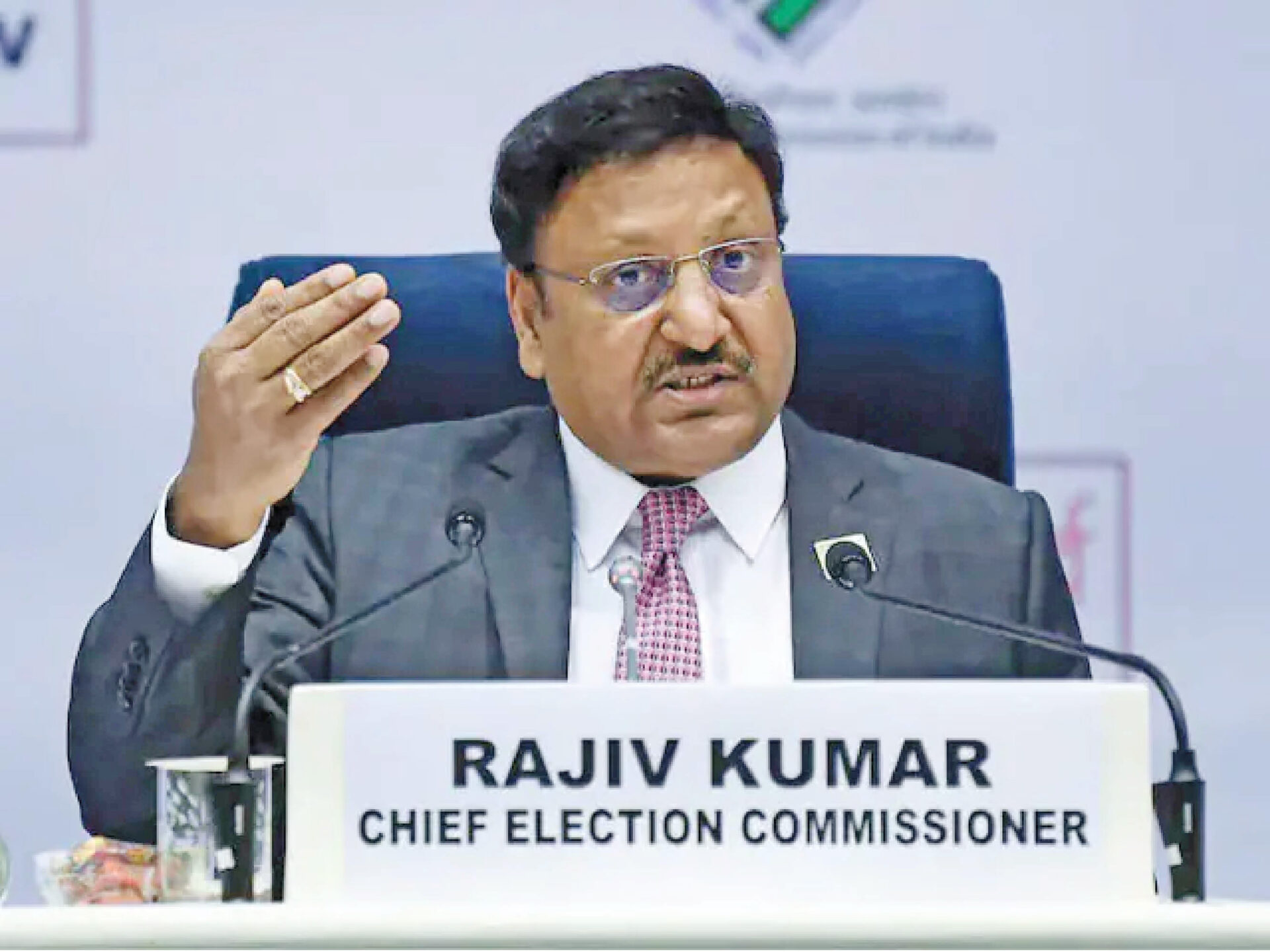NEW DELHI: In the last one month ECI had seized Rs 4,650 crore in cash and goods meant to impact polling.
When the Election Commission held the press conference on 16 March to announce the schedule for the ongoing Lok Sabha elections, it had made it clear that it would be ensuring that the elections were conducted in a free, fair and unbiased manner.
The otherwise soft-spoken Chief Election Commissioner, Rajiv Kumar, who was under pressure of ensuring that the EC did not become a toothless body with a perfunctory role, in a stern message to the political parties said that there would be zero tolerance to any incident undertaken to undermine the election process.
In one month of the said announcement and even before the first phase of polling took place, the ECI had seized Rs 4,650 crore worth cash and goods that were meant to impact polling. This massive figure, the highest ever in the history of election related seizure, is likely to reach newer heights as the elections have just started and six phases of polling are still left.
Officials believe that this figure is going to cross Rs 7,500 crore by next month end.
In 2019, the ECI’s seizure was worth Rs 3,475 crore during the entire election process out of which the cash component was Rs 841 crore. In 2014, it had seized Rs 300 crore in cash.
To put it in perspective, the ECI had spent about Rs 4,000 crore to conduct the 2014 general elections, this includes expenditure incurred for setting up of polling stations, polling booths and counting centres, payment of travelling allowance (TA) and dearness allowance (DA) to polling personnel and counting staff, transporting election material including ballot boxes and EVM machines to the polling and counting centres, making temporary telephone facilities and electrical fittings in polling booths and counting centres, purchase of election material like indelible ink, ammonia paper, etc., which are exclusively utilized for that particular election and other miscellaneous expenditure for the purpose of smooth conduct of polling and counting.
In this election, till the end of second week of April, the ECI had seized Rs 400 crore.
ECI sources said that a lot of homework has been done by the body to ensure external factors like bribe, fear and liquor are taken out of the equation to ensure high and maximum percentage of votes are cast freely. The body had identified 123 parliamentary constituencies where chances of bribe being offered was more and categorized them as Expenditure Sensitive Constituencies for more focused vigil. The body has also carefully selected 656 bureaucrats from across India and deployed them as Expenditure Observers to keep an eye on the political campaign.
The top eight maximum-seizures state till the second week of April are Rajasthan Rs 778 crore worth cash, drugs and liquor; Gujarat Rs 605 crore; Tamil Nadu Rs 460 crore; Maharashtra Rs 431 crore; Punjab Rs 311 crore; Karnataka Rs 281 crore; Delhi Rs 236 crore; and West Bengal Rs 219 crore.
Multiple government agencies have been entrusted with different sets of jobs to ensure a better execution of ECI’s mandate.
Seizure of cash and precious metals is being handled by Income Tax, state police, Reserve Bank of India, state level bankers’ committees who are checking suspicious transactions, Airports Authority of India, Bureau of Civil Aviation Services, State Civil Aviation, Enforcement Directorate, Department of Post and Central Industrial Security Forces.
Liquor distribution and smuggling are being handled by the state police, state excise and Railway Protection Force, while control on narcotics has been entrusted to state police, Narcotics Control Bureau, Indian Coast Guard and Directorate of Revenue Intelligence.
Curbing the distribution of freebies has been entrusted with officials of the Central Goods and Services Tax, State Goods and Services Tax, State Transport Department, Customs and State Police. Incidents of cars being stopped and searched for unaccounted cash have become the most prominent example of the strictness of the ECI in these elections, with citizens’ groups, resident welfare associations and officegoers reporting such incidents being witnessed daily.
According to a person familiar with the Angadia network, many of the operators have decided to “take a break” in view of the increased checks and curbs on transporting cash from one place to another. Earlier, election seasons were considered to be a time of good business for these informal money transferring entities.

